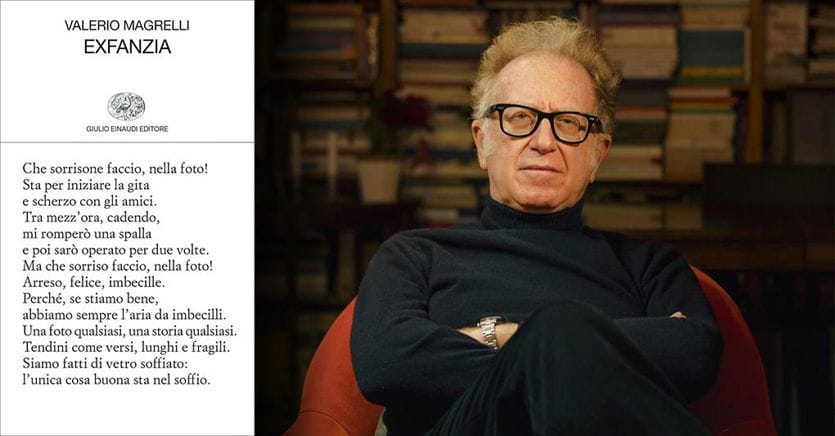Since his debut, with “Ora serrata retinae”, in 1980, Valerio Magrelli had immediately established himself in the panorama of Italian poetry as one of the decisive authors of his generation, and has remained so over the years – collection after collection, in the happy gradually maturing of his voice (at the time he was just over twenty years old).
This is to say that he certainly needs no introduction today; and over time we have learned to know and love him not only as a poet but also as a writer, as well as an intellectual tout court (after all Magrelli is also a university professor of French literature and a translator). We think, among all, of two books such as “In the condominium of flesh” and “Geology of a father”, in which the breath of poetry is extended to even more complete existential pictures, concerning the mystery of one’s own identity – starting from one’s own body , in the first case, or from the relationship with the father in the second.
Rather, it should be emphasized that Magrelli has always remained faithful to certain characteristic traits, which critics had immediately underlined and which we still find today in his works, including the poems that now make up Exfanzia, his latest collection just released by Einaudi (132 pages, € 11.50).
The illumination of a small gesture
For example: a gaze that manages to rest on things as if it could enjoy a privileged field of observation, as if “from a dark room” towards the light (Enzo Siciliano noted this, Ermanno Krumm reiterated it); the ability to fix situations through the illumination of a small gesture, of a tic; the taste for certain verbal games or short circuits; the expression of a restlessness of the ego – either in the form of estrangement or melancholy, or of nostalgia for somewhere else actually lived or even just longed for.
The light of childhood
All this is also very true in Exfanzia: and this is already revealed, if you like, by the very title of the collection, in its allusion to childhood seen from afar, or rather from an outside, rather than from an “in”, from an inclusive inside. It is as if, once again, Magrelli had found a special angle of observation on the world and on life: here the light towards which his gaze is directed is precisely childhood, and it is in this light that the scenes unfold. Magrelli is the observer, but he is also the observed: it is his children who appear in the paintings, but it is also himself. And not only that: with him, with them, it is as if an entire constellation of presences, memories, absences appeared. It is as if Magrelli were writing from a future already dreamed of and summoning, in front of him, everything that has left a mark and all those who have left a trace within this future. the child who dribbles and dribbles, and it almost seems that the verses are addressed to him as if he were someone else, as if it were a “you” or a “him” different from their author: “Dribbles and dribbles / in an afternoon of summer, and heat. / Only with the ball and its laws / that child spent hours and hours / to overcome the predetermined number of shots: / not cheerful, but absorbed, / completely dedicated to the assigned purpose “- only to finally reveal himself in an “I” in the concluding verses: “It was an account of happiness, or comfort / towards the future, towards adverse days. Perhaps for this reason, now, I write verses ”.
